Are INFJs Smarter Than Other Types?
Are certain personality types smarter than others? Are INFJs more intelligent than the average person? As an MBTI® practitioner, this is a question I’m asked a lot. And I always reply with, “All the personality types are intelligent in different ways and for different reasons.”
After all, a cat and a fish are both intelligent in their own ways; but if you were to compare them only by how fast they could climb a tree, it would be an unfair assessment of their value! Similarly, it can get kind of messy assessing someone’s intelligence only based on their psychological type.

However, people continue to raise the question of whether certain personality types are smarter than others. I’ve especially been asked about intelligence and how it relates to the INFJ personality type. So let’s explore the unique kind of intelligence that INFJs bring to the world, while being fully aware that each type has the propensity for intelligence and many other factors play into intelligence, such as upbringing, health, family life, and influential teachers.
Not sure what your personality type is? Take our new personality questionnaire here. Or you can take the official Myers-Briggs Type Indicator (MBTI®) here.
Are INFJs Smart? A Closer Look
INFJs, according to the MBTI® Manual, have the second highest grades in high school, the highest first-semester college grades, and one of the highest undergraduate grades. They are also among the highest college persisters. In addition, INFJs tend to score above average in IQ tests. These facts seem to indicate high potential in academic life, but how does this translate into types of intelligence?
According to Gordon Lawrence, Ph.D., the author of Looking at Type® and Learning Styles: Using Psychological Type to Make Learning Personality Effective, INFJs are “people-oriented innovators.” He goes on to state that they are best when they’re caught up in inspiration, envisioning ways to empower themselves and others to lead more meaningful lives. They have a knack for anticipating peoples’ needs and concerns, and are often catalysts that put people on a trajectory that will improve their lives. Since INFJs enjoy planning ways to help people improve, this also hints at their emotional intelligence.
INFJs are known for their intuitive abilities. They have a natural inclination to see complexities and hidden meanings behind every aspect of life. Unlike many other types, who take things literally or at face-value, INFJs peer “behind the scenes” and look for nuances that are not immediately obvious. This can give them a leg-up in abstract subjects, such as philosophy and psychology.
Reading, writing, imagining, and toying with theoretical complexities are all things that make INFJs come alive. In my 2018 survey, INFJs read more books than 14 of the other Myers-Briggs® personality types, placing them in second place (after INFPs). While the average American reads 12 books per year, INFJs on average read a total of 67 books per year! Reading boosts intelligence in several areas including language, problem-solving, vocabulary, empathy, and imagination. It’s no wonder that INFJs are often perceived as intelligent types!
What is the INFJ Learning Style Like?
INFJs learn best when they have a quiet space to pursue new ideas and potentials. They thrive when they can follow an epiphany of inspiration and are curious about anything that engages their imagination. When their imagination isn’t engaged or they don’t see room for possibility, they can feel listless and uninspired.
An Ideal INFJ Learning Environment:

INFJs make excellent self-led learners and are highly independent. It’s important to them to have a good relationship with their teacher (if they have one), and they’ll often go above and beyond to try to perform well in school. Positive feedback is crucial, but they also need some independence to accomplish tasks and objectives in their own way. INFJs need space to delve into their interests and projects in their own way. Reading, imagining, innovating, writing, and daydreaming are all part of the process. Having a quiet space where they can feel alone with their thoughts and block out distractions is beneficial for this process.
In contrast, working in highly competitive, fast-paced environments can be overwhelming for INFJs. They prefer a slower, more reflective learning environment that allows them to explore big ideas and possibilities in their own way.
How the INFJ Mind Works:

I’ve written about the INFJ mind at length in this 2019 article, but in brief, the INFJ mind is continuously flowing with ideas. These ideas are all related in complex ways, and this process is very private.
Where NP personality types (ENFPs, ENTPs, INFPs, and INTPs) work out their ideas verbally in real-time, INFJs work out their ideas privately in their own minds and can struggle to find words to adequately express the complexity of their thoughts.
They quickly see associations and meanings, spot interrelationships, and grasp general concepts. Many meanings and epiphanies come to them, seemingly out of nowhere!
Often their best problem solving happens when they allow time for unconscious processing. Getting some time to quietly pursue a meditative subject in a quiet space will often allow these epiphanies to show up. For some INFJs, their best “aha” moments happen in the shower. For others, they happen while baking, playing solitaire, or meditating.
INFJ Problem-Solving:
INFJs are focused on people more than objects and metrics. While they tend to perform well in school, their problem solving is heavily affected by personal priorities. They focus on making decisions that prioritize other people’s needs and concerns. Because of this, arguments that are devoid of human consideration can seem callous and insensitive to them.
They are natural problem-solvers, but they can be thrown off course when a problem becomes overly impersonal or disrupts the harmony of people involved. If people are involved in a decision, then they will usually prioritize the emotional/human component over the metrics.
Intelligent INFJs in History:

“In a gentle way, you can shake the world.” – Mahatma Gandhi
Mahatma Gandhi is one of the most famous INFJs in history. Gandhi led a peaceful revolution in India to free his country from British rule. He believed in nonviolent protest and civil disobedience, even going on hunger strikes to make his message heard. Gandhi was a spiritual leader who valued simplicity and the power of the individual. His ability to connect with others and lead them in the fight for freedom has made him an icon of peaceful activism.
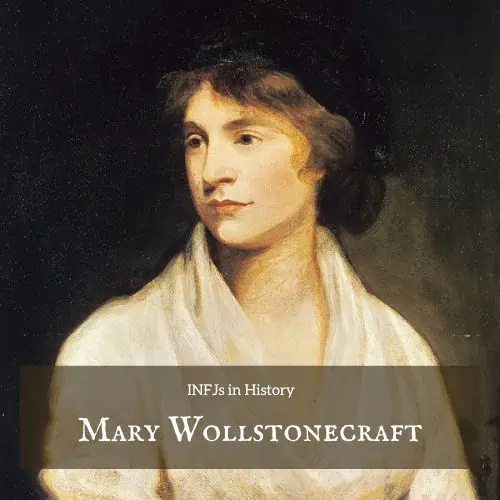
“My dreams were all my own; I accounted for them to nobody; they were my refuge when annoyed—my dearest pleasure when free.” – Mary Wollstonecraft
Mary Wollstonecraft was a feminist and philosopher who wrote extensively about women’s rights. Her most famous work, A Vindication of the Rights of Woman, argued that women should have equal rights to men in education and in society. Wollstonecraft recognized the importance of empathy and emotional connection, and believed that women’s contributions to society were just as valuable as men’s. She challenged the traditional gender roles of her time and paved the way for future generations of women to demand equality.

“The highest activity a human being can attain is learning for understanding, because to understand is to be free.” – Baruch Spinoza
Baruch Spinoza was a philosopher during the Age of Enlightenment and is considered one of the greatest thinkers in history. Spinoza’s philosophical views were centered around the idea that God and nature are one and the same, and that people have the power to shape their own destiny. He argued for religious tolerance and freedom, and his writings influenced the development of modern science and rationalism. Despite facing persecution for his beliefs, Spinoza remained steadfast in his commitment to truth and the power of reason.
What Are Your Thoughts?
Did you enjoy this article? Do you have any thoughts or insights to share? Let us know in the comments!
Discover more about your personality type in our eBooks, Discovering You: Unlocking the Power of Personality Type, The INFJ – Understanding the Mystic, The INTJ – Understanding the Strategist, and The INFP – Understanding the Dreamer. You can also connect with me via Facebook, Instagram, or Twitter!
Other Articles You Might Enjoy:
24 Signs You’re an INFJ, the Mystic Personality Type
10 Extremely Annoying INFJ Pet Peeves

References:
MBTI® Manual for the Global Step 1™ and Step II™ Assessments by Isabel Briggs Myers, Naomi Quenk, Mary H. McCaulley, Allen L. Hammer – 4th edition (The Myers-Briggs Company, 2018)
Looking at Type® and Learning Styles: Using Psychological Type to Make Learning Personality Effective by Gordon D. Lawrence (Center for Applications of Psychological Type, 1997)


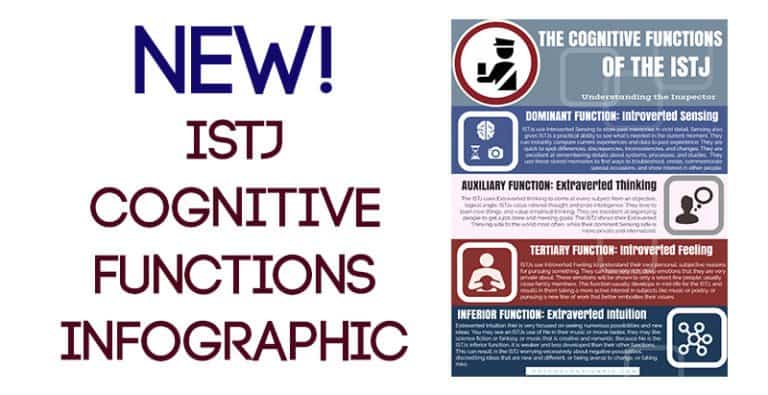
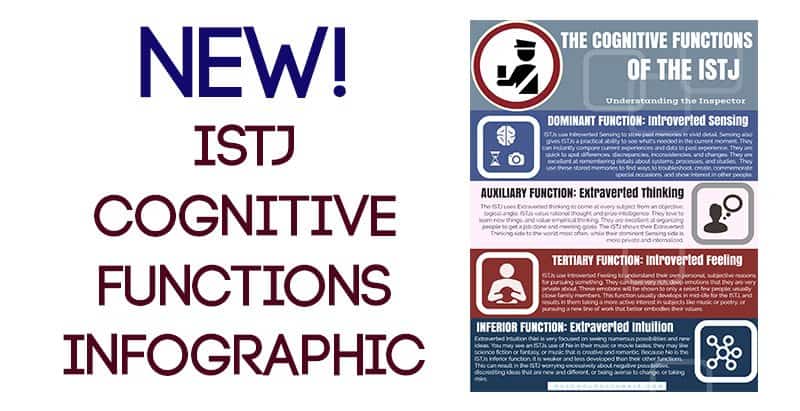




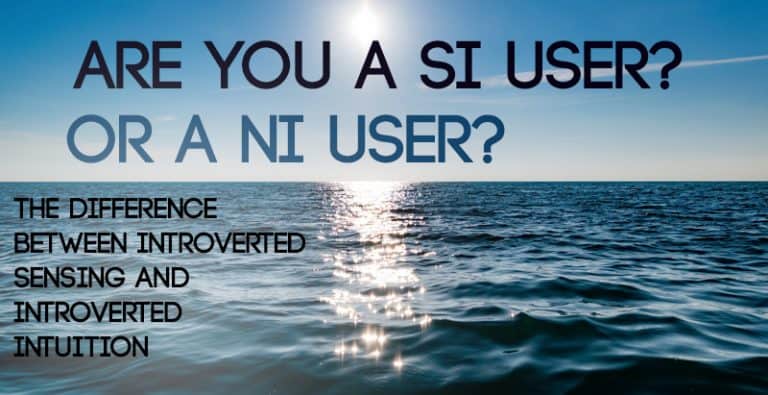
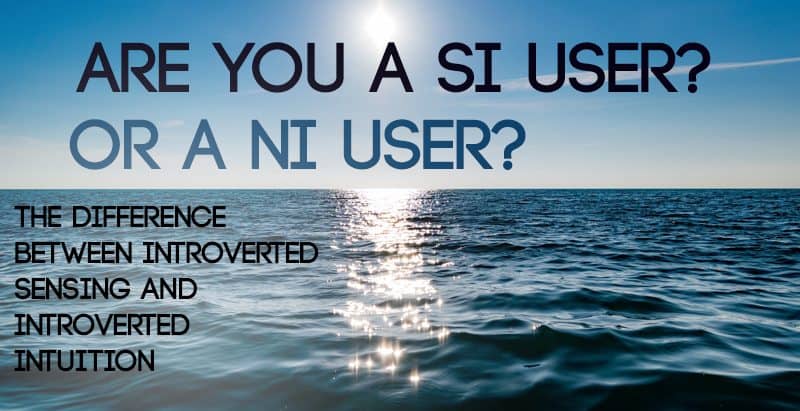



As an infj, sometimes my own world is a mystery to me. Recently found out my mother was an infj too. She was more of a negotiator and I am at times a turbulent advocate. Makes sense? Hope so. My learning style is ” know as much as possible about a topic”. Overthinking obviously. And I use colours, images and patterns. And my mind is my own. I’ve tried to join infj groups, but most don’t seem what I need. How do i keep going in a world we’re we are labeled
” weird, know it all” , unsociable and always discerning. I find a niche where I can grow, care and support. Without losing who I am.
Your insight into the infj mind, is remarkable. Thank you for that. And a big thank you for informative information to help us understand ourselves better.
I’m not a good grade seeker and do not test well on intelligence. I hold advanced degrees and love learning of all things. I lead by motivating others to use their leadership qualities. I’m bold and confident in what I truly believe. I’m interested in the achievements of those whom I lead.
Sounds great